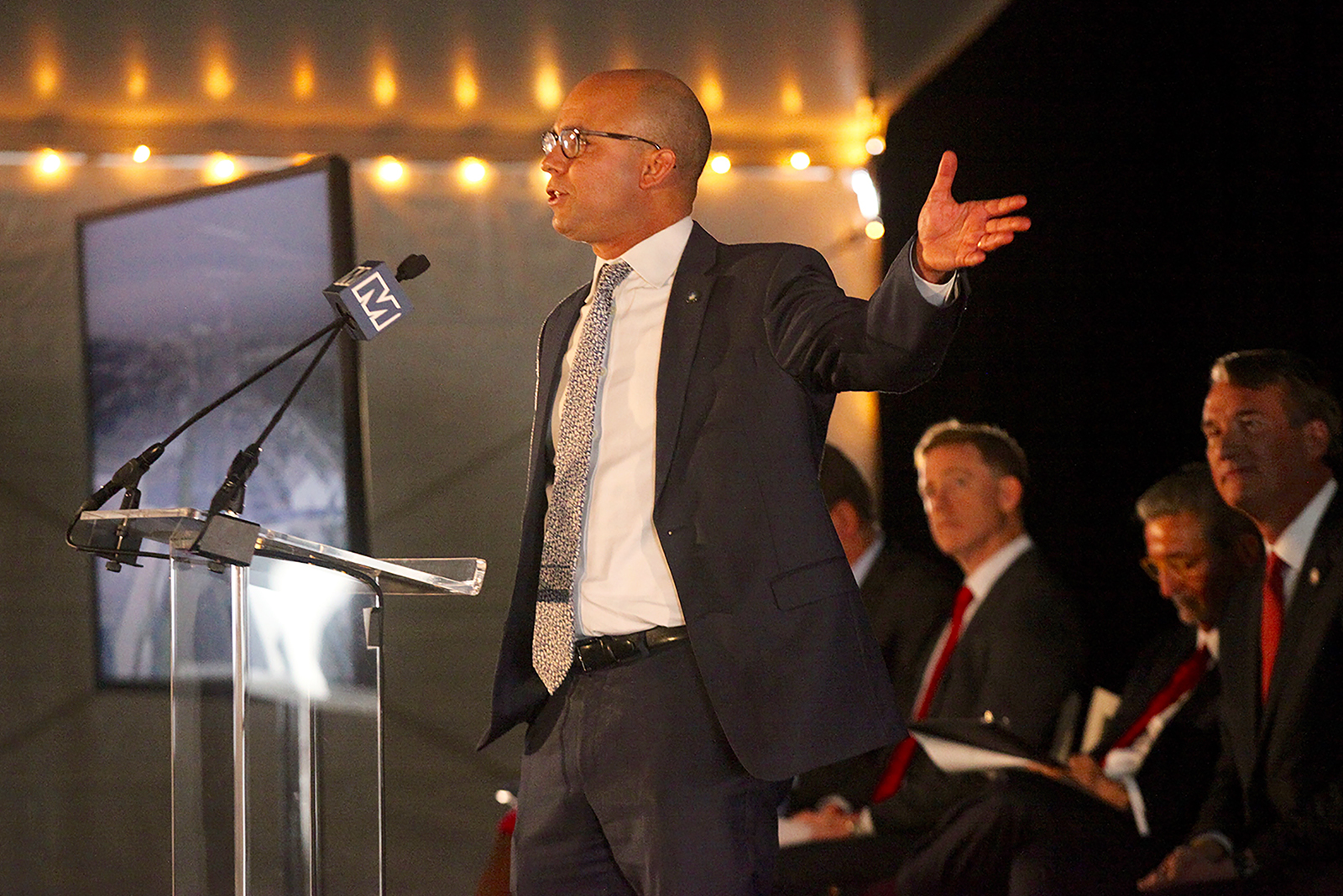
Another year, another multi-million dollar revenue shortfall in the city’s budget.
In a newsletter, Alexandria Mayor Justin Wilson said the city is seeing gradual growth in real estate taxes. The city is also seeing a return to normalcy in vehicle personal property tax revenues after a surge during the pandemic.
According to the newsletter:
Real estate tax revenues are currently projected to grow by 2.4%, which would be a return to the anemic growth that has characterized much of the last decade and a half. After a pandemic-driven aberration with higher than expected vehicle prices, our staff is now projecting that vehicle personal property tax revenues will return to normal with a modest 1% increase next year.
But while that’s mostly good news for local home and car owners, Wilson said the city is facing a shortfall that requires either spending reductions, a tax increase, or some combination of the two.
During some of the Potomac Yard arena discussions, Wilson and other city leaders said their hope is major commercial developments can help right-size the city’s increasing reliance on the residential tax base as office and commercial markets still suffer post-pandemic.
2024 being a City Council election year might make leaders wary of proposing a tax increase. Wilson announced that he is not running for reelection, but the two current City Council members running for Mayor might be more reticent to support a tax increase months ahead of the primary on June 18.
Yet on the expenditure side of the ledger, we are seeing increases in costs across our balance sheet, driven by new costs for cash capital and debt service to support City and School capital investments, new investments to support student enrollment growth, the costs of regional and local transit services and the impacts of new collective bargaining agreements for our City employees.
Wilson said the current shortfall is around $19 million.
“Given that our local budget must be balanced, that shortfall must be resolved with either spending reductions, tax increases or some combination of the two,” Wilson said.
Wilson said the current adopted guidance asks City Manager Jim Parajon to return to the Council with two budgets, one with a tax rate increase and a scenario that includes a tax rate increase.
The budget presentation is scheduled for Feb. 27.
According to Wilson:
This will be a challenging environment to adopt a budget. With our residential taxpayers already paying more this year due to the appreciation in our residential tax base, I believe we should again work to avoid a rate increase while protecting the core services our residents depend on. Last year was the 7th budget in a row without a tax rate increase and I am hopeful we can continue that pattern.

